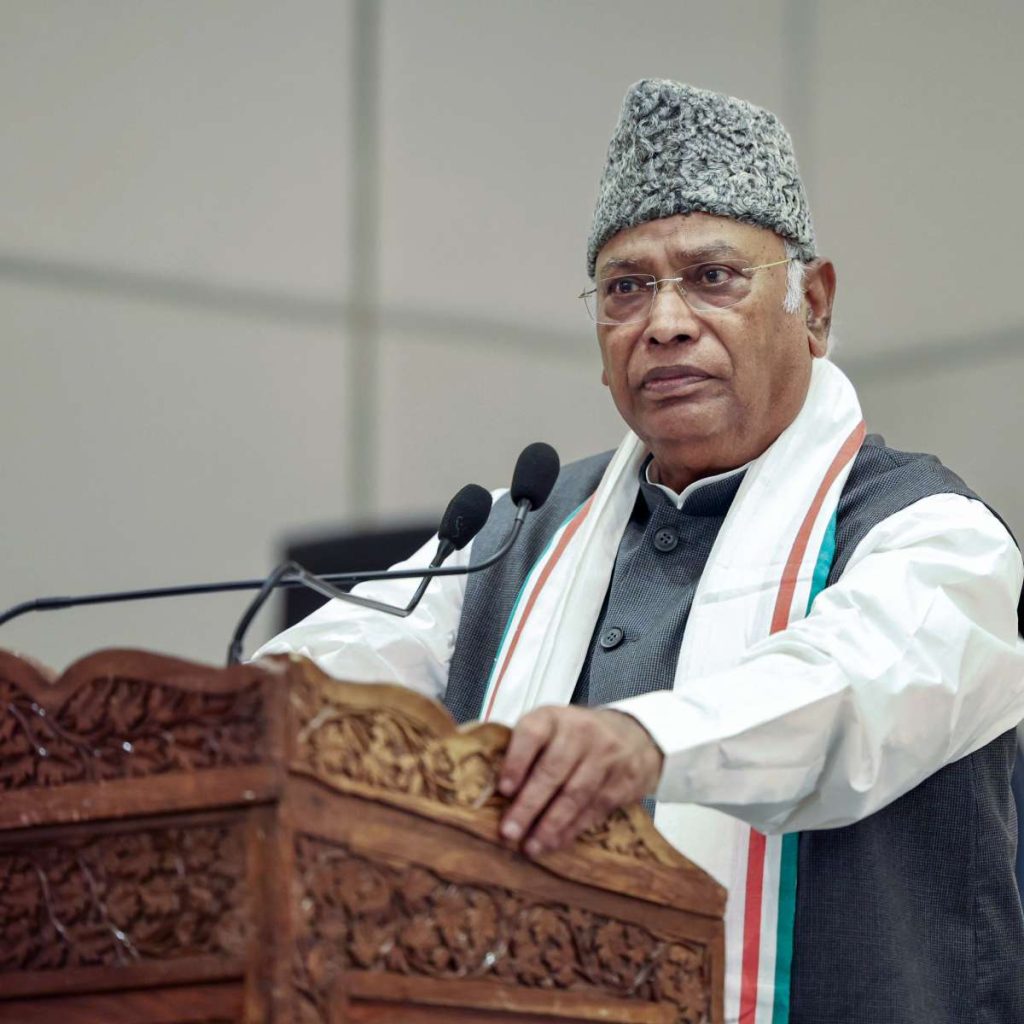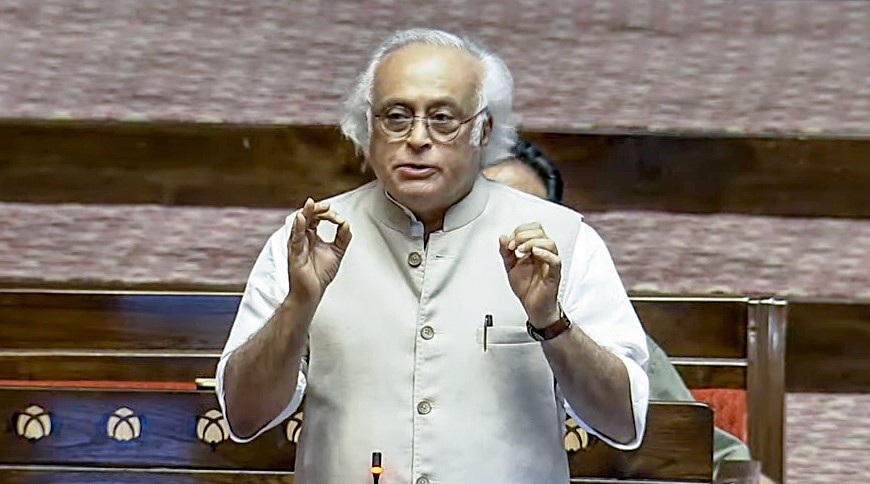Congress general secretary in-charge communications Jairam Ramesh said a new report by a noted brokerage firm has once again shed light on the truth…reports Asian Lite News
The Congress on Sunday claimed that a combination of slow wage growth and “back-breaking” inflation has caused an unprecedented decline in real wages and said that like the “proverbial ostrich”, the government continues to remain blind to the most fundamental challenge faced by the Indian economy.
Congress general secretary in-charge communications Jairam Ramesh said a new report by a noted brokerage firm has once again shed light on the truth that the Union Government has consistently denied – real household incomes in India are facing a persistent decline.
“A combination of slow wage growth and back-breaking inflation has caused an unprecedented decline in real wages (wages adjusted for price rise) and therefore incomes,” he said in a statement.
Ramesh pointed out that several surveys and data sets – including the Annual Survey of Unregistered Enterprises (ASUSE), the Reserve Bank of India’s KLEMS data, and the Household Consumer Expenditure Survey (HCES) – have demonstrated financial distress among working class Indians.
Multiple data sources, including the government’s own official statistics, have even shown clear evidence that workers can buy less today than they could 10 years ago, he said.
“Labour Bureau’s Wage Rate Index (Government Data): Real wages for labourers stagnated between 2014-2023, and in fact declined between 2019-2024. Ministry of Agriculture’s Agricultural Statistics at a Glance (Government Data): Under Dr Manmohan Singh, real wages for agricultural labourers grew at 6.8 per cent each year. Under Mr. Modi, real wages for agricultural labourers declined by minus 1.3 per cent each year,” he said.
Citing periodic labour force survey series, Ramesh said average real earnings over time have stagnated between 2017 and 2022 across all employment types – salaried workers, casual workers, and self-employed workers.
Citing Centre for Labour Research and Action data, he said real wages of brick kiln workers have stagnated or declined between 2014 and 2022.
Brick kilns involve intensive labour and are a low-paying work of last resort for India’s poorest, he added.
“In my intervention on the Finance Bill in the Rajya Sabha on August 8, 2024, I had asked four straight questions on the state of the economy,” he said.
“The non-biological PM hasn’t yet broken his silence on them, so they are worth repeating: Why does private investment continue to be sluggish? Why has the private sector’s share in overall investment declined to its lowest level in four years?” Ramesh said.
“Why is consumption growth so weak and why did private final consumption expenditure – the largest component of the GDP – grew at only around 4 per cent in FY24,” he asked.
Why are real wages and incomes stagnant or falling, Ramesh further asked.
“Why has manufacturing as percentage of GDP fallen from 16.5 per cent in UPA to 14.5 per cent? Why has this decline been particularly sharp in labour-intensive manufacturing like textiles? Why have India’s garment exports fallen from USD 15 billion in 2013-14 to USD 14.5 billion in 2023-2024?” the Congress leader said.
“The Union Budget has come and gone, but like the proverbial ostrich, the Government and the non-biological PM continue to remain blind to the most fundamental challenge faced by the Indian economy,” Ramesh said.

‘U’ in UPS stands for Modi govt’s U-turns, says Kharge
The Congress on Sunday took a jibe at the Centre over its announcement of the Unified Pension Scheme, saying the ‘U’ in UPS stands for the Modi government’s “U-turns”. The opposition party also alleged that the UPS appears to be an attack on Dalits, tribals and backward classes.
Taking a dig at the government, Congress president Mallikarjun Kharge said, “The ‘U’ in UPS stands for Modi Govt’s U turns! Post June 4, the power of the people has prevailed over the arrogance of power of the Prime Minister. Rollback in the budget regarding Long Term Capital Gain/Indexation. Sending Waqf Bill to JPC. Rollback of Broadcast Bill. Rollback of Lateral Entry,” he said in a post on X.
“We will keep ensuring accountability and protect 140 crore Indians from this despotic government,” the Congress chief said.
The Congress’ media and publicity department head Pawan Khera alleged that the UPS appears to be an attack on Dalits, tribals and backward classes.
“In many states, the upper age limit for government jobs for reserved category is 40 years. In UPSC, this limit is 37 years. Under the unified pension scheme, it is mandatory to render 25 years of service to get a full pension,” Khera said.
In such a situation, how will Scheduled Caste, Scheduled Tribe and Other Backward Classes employees avail this facility, he asked.
“Now the government should tell whether it wants to end the upper age limit facility available to the underprivileged or wants to deprive them of full pension?” Khera said on X.
However, Professionals’ Congress chairman Praveen Chakravarty appeared to strike a divergent note from his party and said the introduction of the scheme was “welcome and prudent”.
“Pension for govt staff in India is inherently a tax on the majority poor to pay the elite minority. So, OPS was reformed to NPS in 2013. But NPS did not assure a minimum amount for retired families,” Chakravarty said in a post on X.
“Now, UPS does that UPS = NPS + Minimum guarantee. This is prudent & welcome,” he said.
Though Chakravarty’s X account is not verified, several top Congress leaders, including Rahul Gandhi, follow it. The Union Cabinet on Saturday approved an assured pension of 50 per cent of salary for those who joined the service after January 1, 2004, under the National Pension System (NPS), fulfilling a long-pending demand of government employees ahead of assembly elections in Haryana and Jammu and Kashmir.
Employees opting for the UPS would be eligible for an assured pension of 50 per cent of the average basic pay drawn over the last 12 months before superannuation for a minimum qualifying service of 25 years.
This pay is to be proportionate for a lesser service period up to a minimum of 10 years of service, Information and Broadcasting Minister Ashwini Vaishnaw said.
The new pension scheme also guarantees an assured minimum pension of Rs 10,000 per month on superannuation after a minimum of 10 years of service.
This will benefit 23 lakh central government employees, Vaishnaw said, adding that the number would rise to 90 lakh if state governments want to join the scheme.
ALSO READ: Zelensky backs India hosting second summit on peace

